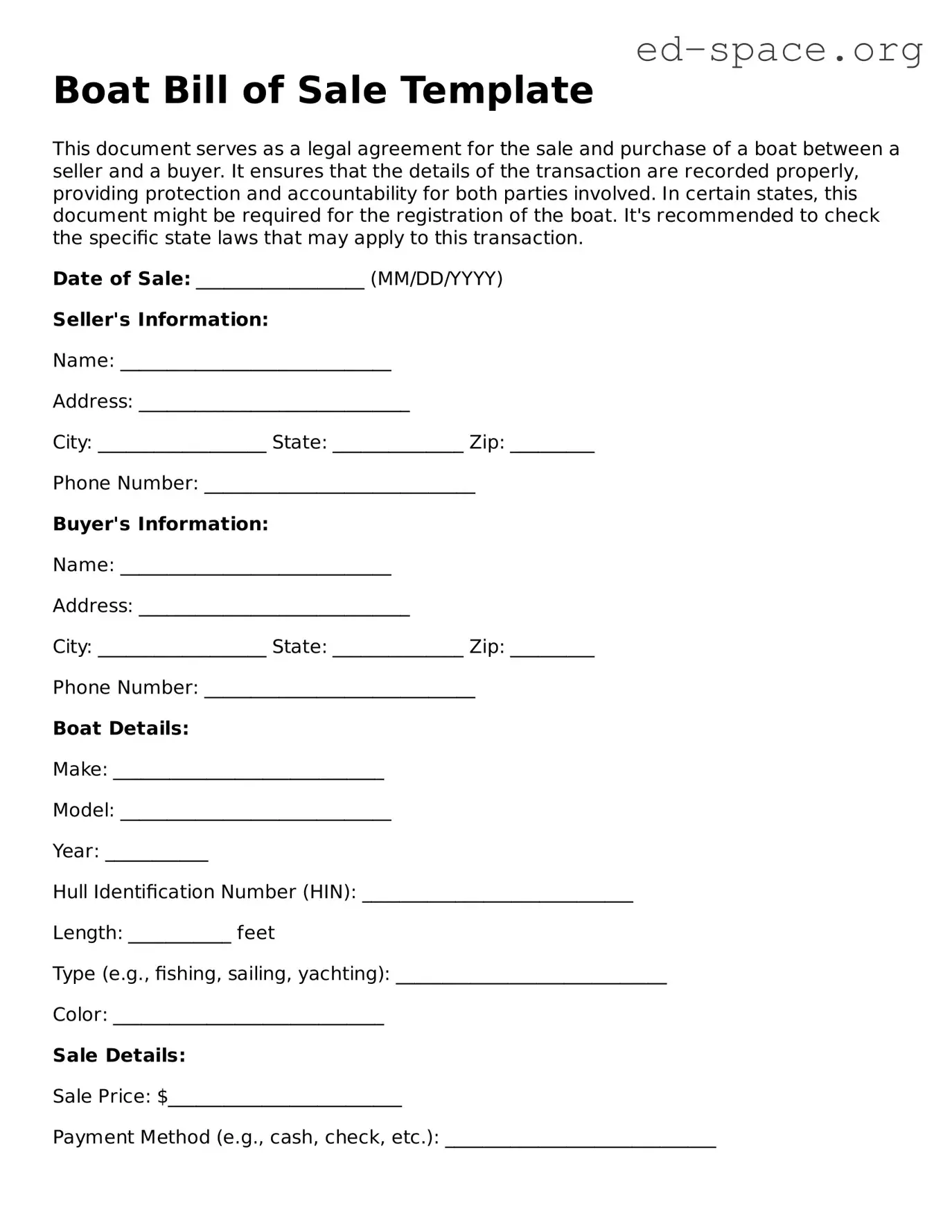Boat Bill of Sale Template
This document serves as a legal agreement for the sale and purchase of a boat between a seller and a buyer. It ensures that the details of the transaction are recorded properly, providing protection and accountability for both parties involved. In certain states, this document might be required for the registration of the boat. It's recommended to check the specific state laws that may apply to this transaction.
Date of Sale: __________________ (MM/DD/YYYY)
Seller's Information:
Name: _____________________________
Address: _____________________________
City: __________________ State: ______________ Zip: _________
Phone Number: _____________________________
Buyer's Information:
Name: _____________________________
Address: _____________________________
City: __________________ State: ______________ Zip: _________
Phone Number: _____________________________
Boat Details:
Make: _____________________________
Model: _____________________________
Year: ___________
Hull Identification Number (HIN): _____________________________
Length: ___________ feet
Type (e.g., fishing, sailing, yachting): _____________________________
Color: _____________________________
Sale Details:
Sale Price: $_________________________
Payment Method (e.g., cash, check, etc.): _____________________________
Other terms and conditions related to the sale (if any):
________________________________________________________________________
________________________________________________________________________
Signatures:
This agreement acknowledges that the seller agrees to sell and the buyer agrees to buy the boat under the terms described above.
Seller's Signature: _____________________________ Date: _____________
Buyer's Signature: _____________________________ Date: _____________
This document is not to be considered a comprehensive legal document. Consulting with a legal professional to ensure that all state-specific requirements are met and that the rights and responsibilities of both parties are properly protected is highly advised.
